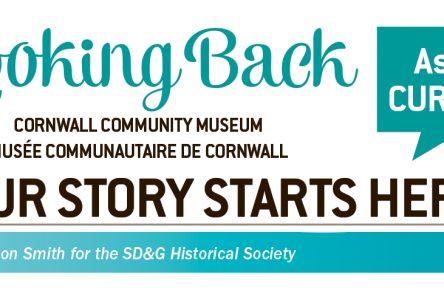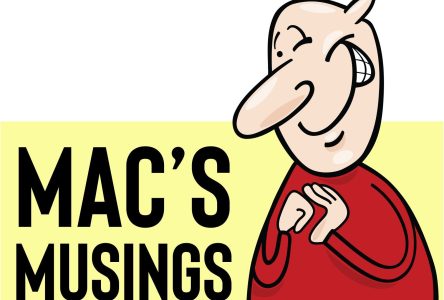So there I was travelling along Second Street and I thought I’d tune into one of the radio stations I had worked at in my other life, many years ago. It was 10:40am or thereabouts on Wednesday, August 18th and the station was playing some oldie song of one sort or another. I was headed to an 11am appointment in Cornwall.
I made my appointment when I was called into an office and asked to listen. There on the radio was new General Manager of the Corus radio stations JJ Johnston giving last rites to CJUL or as oldtimers remember it, CJSS.
The AM radio station was signing off for good and with that, a part of broadcasting history in Cornwall was coming to an end.
Needless to say it was personal for me, having spent close to a decade working at what was then Tri-co Broadcasting which consisted of two radio stations—an AM and an FM outlet. There was nothing unusual about that. Many communities across Canada had similar operations but the futurists could see an end to AM radio, particularly in smaller communities. You see AM radio is subject to limited reception unless you have tens of thousands of watts of power. AM also couldn’t deliver the sound that the baby boomers demanded with their stereo tunes. Myself, I grew up on AM radio (yup, little older than the baby boomers) and yes 1050 CHUM in Toronto was a staple, along with 580 CKEY in Toronto, 1150 CKOC in Hamilton (all rock and roll stations), along with 900 CHML in Hamilton—the so-called “middle of the road” station that those old “fogies” our parents used to like. What few FM radio stations there were, in any market were dedicated either to classical music (cooties to a growing teen) and hours and hours of talk (bor-r-r-ing again to a teen). At the time little did we realize the change that would take place in radio that would see talk end up on AM stations and rock and roll on FM (although you can still find some classical FM operations but not near as many).
I remember arriving in Cornwall in 1997, scared to death in my new position as Operations Manager of the two radio properties. But I was lucky. I had great people already working at the stations and although I was warned about going to a “union” station, I can honestly say during my tenure the only time you even realized there was a union was during negotiations for a new contract and even that seemed to go smoothly. The same can’t be said prior to my arrival when Cornwall radio was hit with a nasty strike that spoiled relationships forever at that time.
But nevertheless CJSS had significant history.
The station signed on in 1945 owned by, believe it or not, the Standard-Freeholder. Call letters were CKSF. Cornwall had its own FM station in 1957 and I have to assume as we mentioned above, it was either classical and/or elevator music because that’s when FM stations broadcast then. According to Wikipedia, in 1959 the stations “were acquired by Stanley Shankman, the owner of CJSS-TV and both changed their call signs to CJSS as well. Two years after that, Shankman sold his broadcast holdings. The TV station was sold to Ottawa’s CJOH-TV and the radio stations were sold to the local Émard family. The radio stations were subsequently acquired by Tri Co Broadcasting in 1978. Tri Co converted CJSS to the FM band in 1999. CJSS’ former frequency, 1220 AM, did not go dark, but changed to an adult standards format as CJUL.”
A ton of great broadcasters honed their craft at CJSS—too many to start mentioning them here for fear of leaving someone out. However, I’m sure many readers will have some favourite announcer or news reader come to mind when CJSS is mentioned. Who knows? Maybe even the name John Divinski would come to mind for some as that guy who did that talk show “Talkback” in the late 90’s and beyond. He had his moments but he could be a stinker at times as well.
So, in the parlance of broadcasting, CJSS or if you will CJUL went “dark” on
Wednesday, August 18th and it brought AM broadcasting in Cornwall to an end.
No reason was given for the move, but rest assured it was bottom line. AM radio stations for the most part have been riding on the advertising backs of their FM sisters and the cost of maintaining an AM operation continued to rise as revenues and listenership declined.
The only AM radio stations making any type of go of it are all talk/news operations such as CFRA in Ottawa or CFRB or CFTR in Toronto. Those types of formats are pricey but in big markets where even a 1 to 4% share of market can be thousands and thousands of listeners, AM can survive.
I was sad to see an old friend go “dark” but will always have great memories of the fun we had at CJSS and CJUL.
Another piece of sad news is that two employees were let go as a result of the shutdown including morning show host John Bolton.
And here’s a piece of irony, again according to Wikipedia.
“As a consequence to CJUL’s closedown, St. Catharines’ (AM radio)station CHSC could be heard after sunset, though this availability is short-lived, as CHSC’s licence expires permanently on August 31, 2010, and that station is expected to close by then.”
I’m John Divinski


